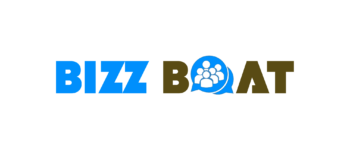In today’s dynamic business landscape, organizations of all sizes face increasingly complex challenges in managing their human resources. From navigating intricate compliance regulations to attracting and retaining top talent, the demands on HR departments can be overwhelming. This is where Professional Employer Organizations (PEOs) step in, offering a strategic partnership that empowers businesses to thrive by outsourcing their most critical HR functions.
But what exactly is a PEO, and how can it fundamentally transform a business? what is a PEO enters into a co-employment relationship with its client companies, sharing certain employer responsibilities and liabilities. While the client retains control over day-to-day operations, core business decisions, and direct management of employees, the PEO assumes responsibility for a wide array of administrative and compliance-related HR tasks. This partnership allows businesses to leverage the PEO’s expertise, resources, and economies of scale, often leading to significant improvements in efficiency, cost savings, and overall employee well-being.
The Core Pillars of a PEO: Services That Drive Growth
PEOs offer a comprehensive suite of services designed to alleviate the administrative burden on businesses and enhance their HR capabilities. These typically include:
- Payroll Administration: This is often the foundational service provided by a PEO. They handle everything from processing paychecks and direct deposits to calculating and withholding taxes (federal, state, and local), managing unemployment claims, and issuing W-2s. This ensures accuracy, timeliness, and compliance with ever-changing payroll tax laws.
- Benefits Administration: One of the most compelling advantages of partnering with a PEO is access to high-quality, cost-effective employee benefits. By pooling the employees of multiple client companies, PEOs gain significant buying power, allowing them to offer robust benefits packages that often rival those of Fortune 500 companies. This can include health, dental, and vision insurance, retirement plans (like 401(k)s), life insurance, disability benefits, and various voluntary perks. The PEO also manages all aspects of benefits administration, from enrollment and claims processing to addressing employee questions and ensuring Affordable Care Act (ACA) compliance.
- HR Compliance and Risk Management: Navigating the labyrinth of employment laws and regulations can be a daunting task, especially for small and medium-sized businesses. PEOs employ dedicated compliance experts who stay abreast of federal, state, and local labor laws, including those related to FLSA, EEO, OSHA, FMLA, and workers’ compensation. They provide guidance on best practices, help develop compliant HR policies and employee handbooks, conduct safety audits, and assist with workers’ compensation claims, significantly reducing a business’s legal liabilities and risks of costly fines or lawsuits.
- Human Resources Support and Consulting: Beyond administrative tasks, PEOs often provide strategic HR support. This can range from developing customized HR strategies and organizational design to talent management advice, performance management system implementation, and assistance with employee relations issues such as disciplinary actions, grievances, and terminations. They act as an extension of your internal HR team, offering expert guidance and support whenever needed.
- Recruitment and Onboarding Support: Some PEOs extend their services to assist with the talent acquisition process. This can involve creating job descriptions, posting openings, screening resumes, conducting interviews, and performing background checks. Once a candidate is hired, the PEO can streamline the onboarding process, handling new hire paperwork, ensuring compliance, and helping new employees integrate smoothly into the company culture.
- Training and Development: To foster a skilled and engaged workforce, many PEOs offer access to employee training and development programs. This can include compliance training, professional development courses, and leadership training, helping employees grow within the organization and contributing to overall business success.
- HR Technology Solutions: Modern PEOs leverage advanced technology platforms to streamline HR processes. These platforms often provide automated payroll, benefits administration portals, time and attendance tracking, and centralized systems for employee documentation and reporting, enhancing efficiency and accessibility for both employers and employees.
The Co-Employment Model: A Shared Partnership
The foundation of the PEO relationship is the “co-employment” model. In this arrangement:
- Client Company: Retains responsibility for managing its employees’ day-to-day work, setting their wages and schedules, and maintaining the company’s culture and values. The client also retains control over hiring decisions and the strategic direction of the business.
- Professional Employer Organization (PEO): Becomes the “administrative employer of record” for tax and insurance purposes. This means the PEO is responsible for processing payroll, remitting payroll taxes, providing benefits, handling workers’ compensation, and ensuring compliance with various employment laws. The PEO assumes certain liabilities associated with these administrative functions.
This shared responsibility model allows businesses to offload the complexities and risks of HR administration while maintaining full control over their core business operations and employee management.
Why Businesses Choose PEOs: A Multifaceted Advantage
The decision to partner with a PEO is driven by a desire to overcome common business challenges and achieve strategic advantages. Here are some key benefits:
- Cost Savings: PEOs leverage economies of scale to negotiate better rates for health insurance, workers’ compensation, and other HR services. This often translates to significant cost savings for client companies, particularly small and medium-sized businesses that would struggle to access such competitive rates on their own. Studies by the National Association of Professional Employer Organizations (NAPEO) suggest a substantial return on investment (ROI) for PEO clients due to cost savings alone.
- Reduced Administrative Burden and Time Savings: HR tasks can be incredibly time-consuming, diverting valuable resources away from core business activities. By outsourcing payroll, benefits administration, and compliance, businesses free up their internal teams to focus on strategic initiatives, revenue generation, and fostering a positive company culture.
- Access to Enhanced Benefits: Offering competitive benefits is crucial for attracting and retaining top talent in today’s competitive job market. PEOs enable smaller businesses to provide Fortune 500-level benefits packages, making them more attractive employers and improving employee satisfaction and retention.
- Mitigation of Compliance Risks: Employment laws are constantly evolving and vary by federal, state, and local jurisdictions. Non-compliance can lead to hefty fines, legal disputes, and reputational damage. PEOs act as compliance watchdogs, keeping businesses up-to-date on regulations and ensuring adherence, thereby significantly reducing legal risks.
- Expert HR Guidance: Not every business can afford a dedicated team of HR experts. A PEO provides access to seasoned HR professionals who can offer guidance on a wide range of HR matters, from employee relations to performance management and organizational development.
- Improved Employee Retention and Productivity: By offering better benefits, ensuring compliance, and providing strategic HR support, PEOs contribute to a more stable and satisfied workforce. This can lead to lower employee turnover rates and increased productivity, as employees feel valued and supported. NAPEO research indicates that businesses using PEOs experience lower turnover rates and better revenue growth compared to non-PEO companies.
- Focus on Core Business Objectives: Ultimately, partnering with a PEO allows business owners and managers to dedicate their time and energy to what they do best: developing products, serving customers, driving sales, and focusing on strategic growth initiatives.
The Growing Landscape of the PEO Industry
The Professional Employer Organization industry has experienced significant growth in recent years, reflecting the increasing demand for outsourced HR solutions. According to NAPEO, the industry has more than quadrupled in size since 2012, with industry revenue rising to hundreds of billions of dollars. PEOs now serve hundreds of thousands of small and mid-sized businesses, employing millions of individuals across the United States. This rapid expansion underscores the value and effectiveness that PEOs bring to the business community.
Choosing the Right PEO Partner
While the benefits of a PEO are clear, selecting the right partner is crucial. Businesses should consider:
- Reputation and Experience: Look for PEOs with a proven track record, positive client testimonials, and accreditations from industry organizations like ESAC (Employer Services Assurance Corporation).
- Service Offerings: Ensure the PEO’s services align with your specific HR needs and business goals.
- Pricing Structure: Understand the fee model and ensure it’s transparent and competitive.
- Technology Platform: Evaluate the user-friendliness and capabilities of their HR technology.
- Customer Service and Support: Assess the responsiveness and quality of their client support.
- Industry Expertise: Some PEOs specialize in certain industries, which can be beneficial for businesses with unique compliance or HR requirements.
In conclusion, Professional Employer Organizations are far more than just payroll processors. They are strategic partners that empower businesses to navigate the complexities of human resources, reduce risks, control costs, and ultimately, focus on achieving their growth potential. For businesses seeking a comprehensive and efficient solution to their HR challenges, a PEO can be a truly transformative asset.














